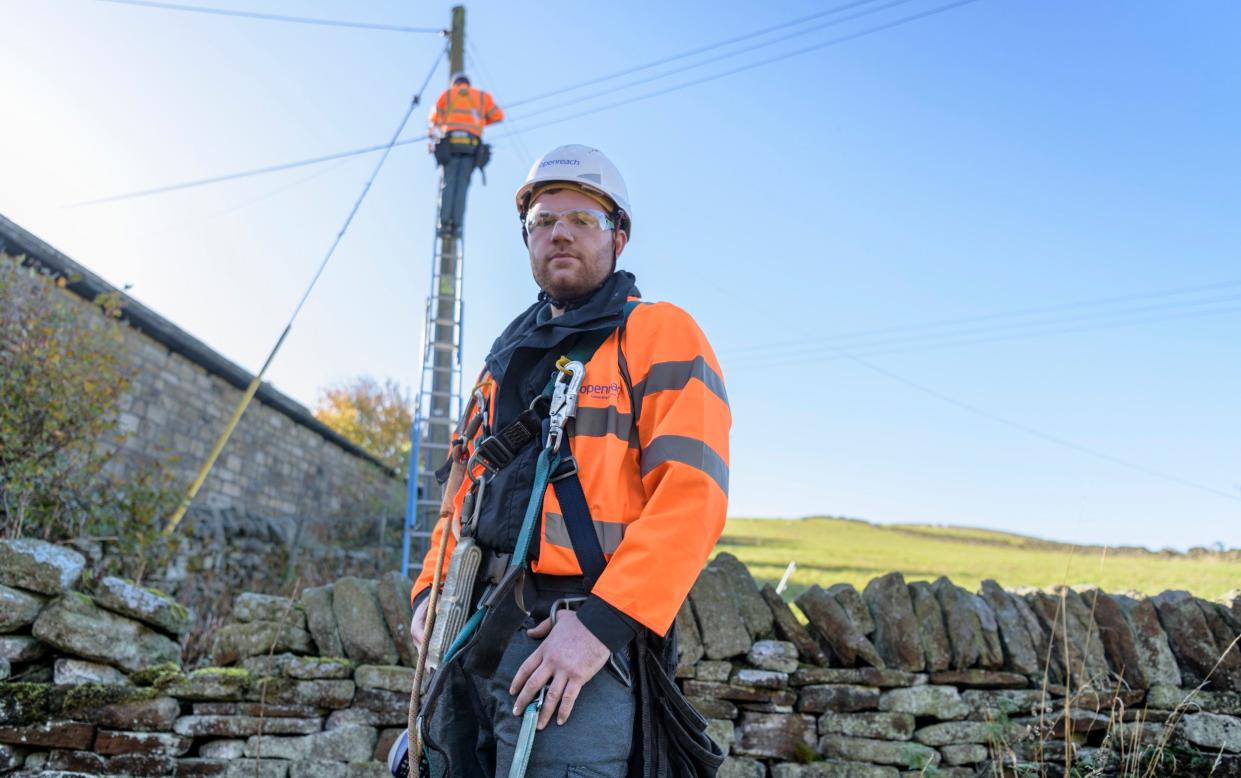Britain’s rural voters are being pushed out of the modern world

How much does Whitehall hate rural voters? Releasing apex predators into the countryside should give us a clue. Now beleaguered rural voters face being cut off from the modern world completely.
The old BT circuit-switched phone network is being turned off and replaced with a digital service – which means that when the power goes down, so does the phone.
Storm Arwen in 2021 saw over one million customers lose power, with around 4,000 going dark for over a week. That’s a long time to go without a 999 service. So in steps the trusty rural mobile service.
Except, our mobile network operators have chosen to shut down 3G services, and this has unearthed some nasty surprises. Some parts of the country have never seen 4G at all while turning off 3G also disrupts some telecare devices, connected cars and smart meters.
Can the Shared Rural Network (SRN) project now be riding to the rescue? This is the ambitious £1bn scheme announced four years ago that promised to increase competition and wipe out the total dead zones, or notspots, by 2027.
That was the plan, anyway. But only one of the four operators, EE, will meet the first milestone, largely thanks to its ability to use its own legacy infrastructure – EE runs the nation’s Emergency Services Network.
The other three operators have had to build new sites, and have been refused an extension. Ofcom can now levy fines on them – not that will help anyone get connected.
While the SRN website boasts that 1,500 mast sites have been upgraded, you could be forgiven for not noticing any difference at all. Operators blame Nimbys, local authority planning departments, EE for not sharing its sites, and even Covid. How very British: everyone’s to blame but no one wants to own up.
In mitigation, no one disputes that building new rural infrastructure is expensive, and the operators must foot the entire bill for phase one. The cost of a new site can exceed a million pounds, and at least one, I’m told, requires diesel refills to be flown in by helicopter.
But one complicating factor is a pure own goal. Have you ever stood in the street, or your garden, cursing your network for not giving you a decent signal, only to check the operator and Ofcom coverage maps and be told everything is fine?
These mobile coverage maps have been a joke for years, and bear as much correspondence with reality as Hogwarts resembles a typical secondary school.
That’s no surprise when you learn how they’re concocted. Ofcom outsources the job to the operators, who then drive around but not with real phones.
“They’re measuring signals, not testing performance,” explains one insider familiar with the process.
This data goes into a big computer model and is then handed over to Ofcom – which validates it but does not do its own thorough tests. So what we see may as well be Hollywood CGI.
This means no one can tell if those million-pound sites have been put in the right place, or whether the networks have fulfilled their promises at all.

All this malarkey is too much for rural champion and Liberal Democrat MP for North Shropshire Helen Morgan, who has tabled a private member’s bill to force the industry to raise its game on rural mobile coverage and performance. Morgan also led a debate on the issues, including the comical coverage maps, last month.
“Industry is going to get away with not getting the Shared Rural Network up to the standard it should be, nor what we expected when it was announced,” she says.
It has certainly focused some minds. The Department for Science, Innovation and Technology (DSIT) wants new ideas ranging from better equipment-sharing – newer technology called “neutral host” works well on new metro networks like the London Tube – and it also wants better coverage maps.
Fundamentally, however, governments have failed to acknowledge that unprofitable sites need cash and made the case for it. Instead over many years, there have been a series of compromises that please no one.
David Cameron was talked out of mandating roaming between networks – and for some very good technical reasons, too, as it could lead to a cascade of failure.
Operators aren’t keen on sharing, or universal performance obligations, for who knows where this might lead?
“There’s an ideological battle here that’s not really capitalism versus communism, it’s the competition purists versus physics versus geography,” says Dean Bubley, an analyst at Disruptive Analysis.
In some countries, like France, he explains, rules have been relaxed in rural areas for fixed broadband. But mobile operators hate that, too.
Morgan tells me her bill is intended to put the Sword of Damocles over the industry: “We will order rural roaming to get the service we need.”
Perhaps a future Labour government will be less squeamish about making the case for new infrastructure. But note how it’s backbench MPs like Morgan who have raised the issue. Labour has been asleep on the issue, and after the general election, it will have fewer voters to care about outside the cities and university towns.
Fixing rural communications doesn’t just benefit the people who live there, SW1 should remember, but the whole country. It enables a great relocation as urbanites are increasingly keen to escape the ever-coarser texture of life in our cities, buying homes and starting families in greener pastures.
But they must be confident that the modern networks are there before they do. Reviving the forgotten countryside should be a national priority – and networks should do their bit.


